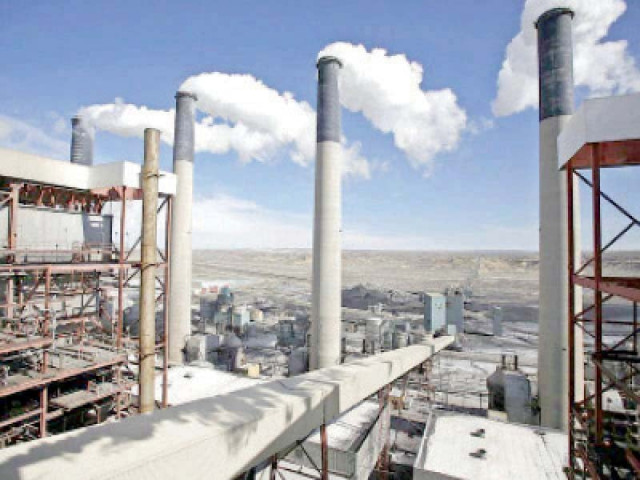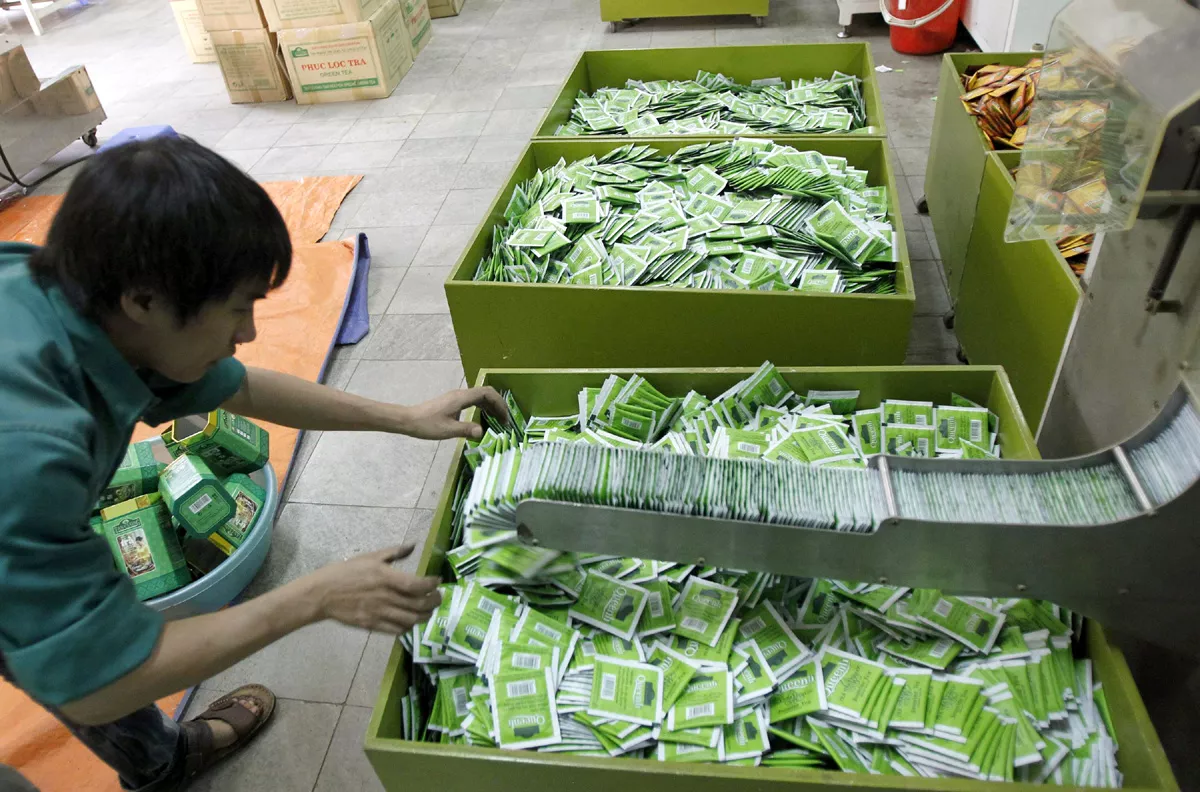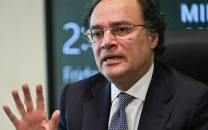PM Shehbaz forms eight working groups to revive exports, industries
Industrialists warn premier of looming export crisis, blaming domestic policies

Prime Minister Shehbaz Sharif has constituted eight new working groups to rescue exports and industries from a complete "collapse" after several of his, mostly foreign-funded, economic plans failed to revive investment and growth.
The groups, focusing on industrialisation, exports, taxation, transportation, dumping of cheaper foreign goods, and agriculture, were created after the nation's leading industrialists warned him about the dire consequences of "collapsing" exports. The new working groups comprise of industry representatives, government officials, and members of the Special Investment Facilitation Council (SIFC). Officials said the prime minister acted after five ongoing plans failed to deliver results or restore investor confidence.
The plans include the International Monetary Fund (IMF)'s programme, the World Bank's 10-year framework, Ahsan Iqbal's locally developed Uraan Pakistan plan, and economist Stefan Dercon's national economic transformation roadmap.
Deputy Prime Minister Ishaq Dar, who already heads 82 committees, most related to governance and economic management, has completed work on 45 of them.
This week, industrialists told the premier that Pakistan's crucial export sector "is collapsing," warning that it provides the backbone of foreign exchange earnings, industrial employment, and national productivity.
They argued that the crisis is not driven by weak global demand but by domestic policies that make exporting uncompetitive.
Following their presentation, the PM's Office directed that the new working groups "suggest measures enabling Pakistani businesses to become more competitive and produce value-added goods and services."
According to the official order, the groups will recommend ways to diversify exports, attract investment, create jobs, and sustain inclusive economic growth. Each group has been tasked to prepare presentations for the prime minister with outcomes and timelines at the next meeting.
Sources said the PM was informed that the export crisis was both real and urgent. Industrialists warned that exporting had become financially unviable and economically irrational, causing collapsing foreign exchange earnings, job losses, and eroding competitiveness.
They said domestic policies had made exporting "economically irrational," forcing industries to shut down not for lack of orders but because of policy-induced impossibilities.
One key issue is the sharp rise in gas tariffs for export industries, up more than 300% in just two to three years, which has destroyed Pakistan's cost competitiveness. The suspension of gas supply to captive power plants has crippled production at export units that rely on uninterrupted energy, while excess gas availability has led to capacity payment losses for idle power plants, penalising efficient users and rewarding systemic inefficiency. Foreign exports units are forced to shift to an expensive and unreliable grid or invest in CAPEX for new energy options, according to the briefing.
Industrialists said the government's carbon levy on fuel inputs had further threatened Pakistan's competitiveness by making products costlier abroad. They also opposed the 10% non-refundable import duty on yarn and greige fabrics, essential for textile exports.
Exporters also raised concern over the overvalued exchange rate, which they said results from under-declared imports that artificially strengthen the rupee. This, they argued, makes Pakistani exports more expensive in global markets while keeping imports unrealistically cheap at home.
The Express Tribune recently reported a $30 billion discrepancy in trade data over the past five years.
Industrialists further noted that delayed sales tax refunds, often used to inflate falling revenue figures, are causing a severe liquidity crisis. The resulting working capital shortages have forced many exporters to cut production and miss international shipment deadlines.
A working group on Export Development Fund (EDF) issues has been formed under the chairmanship of Pakistan's leading exporter, Musadaq Zulqarnain. Members include Shahzad Saleem, Arif Saeed, Misbah Naqvi, PM's Agriculture Coordinator Ahmed Umair, former Commerce Secretary Sualeh Faruqui, and current Commerce Secretary Jawad Paul.
The second working group will focus on customs, trade, tariffs, and the dumping of Chinese goods into Pakistan. It will be chaired by Muhammad Ali Tabba of Lucky Cement. Members include Zulqarnain, Ziad Bashir, Dr Muhammad Saeed from the International Trade Centre, Dr Ijaz Nabi, Dr Robina Athar, Commerce Secretary Jawad Paul, FBR Member Syed Shakeel Shah, and senior FBR officials Arshad Jawad and Imran Mohmand.
The third group will handle income tax matters, with Shahzad Saleem as chairman. Its members are Ziad Bashir, Asif Peer, MNA Riazul Haq Jujj, and FBR Chairman Rashid Langrial.
The fourth working group will address railways affairs and will be led by Ziad Bashir of Gul Ahmed Textile Mills. Members include Saira Awan, Pir Saad Ahsanuddin, Ashfaq Khattak, Railways Secretary Syed Mazhar Ali Shah, and NLC Director General Maj Gen Farrukh Shahzad Rao.
The fifth group, also chaired by Bashir, will oversee port operations. Members include Maritime Affairs Secretary Syed Zafar Ali Shah, Defence Ministry's additional secretary, Gwadar Port Authority Chairman Noorul Haq Baloch, and NLC DG Maj Gen Rao.
Pakistan's ports, despite their strategic location, currently operate as feeder terminals rather than active trade hubs. This inefficiency adds seven to ten days to shipping times, causing lost orders as buyers shift to faster suppliers. The resulting $200-$300 increase per container wipes out already thin profit margins.
Experts estimate annual losses of $2-$3 billion from transshipment cargo that should be handled domestically.
The sixth group on industrialisation will be chaired by Saquib Sherazi of Atlas Honda Limited. Its members include Abbas Akberali, Ahsan Zafar Syed, Nauman Wazir Khattak, Muhammad Kamran Kamal, Osman Saifullah, and Industry Secretary Saif Anjum.
The agriculture working group will be chaired by Rana Nasim Ahmed, with members including PM's Agriculture Coordinator Ahmed Umair, Ali Mukhtar, Dr Zeelaf Munir, Dr Syed Zahoor Hassan, Chela Ram Kewlani, and Food Security Secretary Amir Mohyuddin. However, no farmer representative has been included.
The energy group will be led by Shahzad Saleem of Nishat Chunian Power, with members Arif Saeed, Ziad Bashir, Rehman Nasim, Power Secretary Dr Muhammad Fakhre Alam Irfan, and Petroleum Secretary Momin Agha. The business community has proposed introducing a uniform tariff for all industries across Pakistan, eliminating preferential rates for any sector or region to reduce the high cost of doing business.
It has also urged the government to abolish the 10% super tax, noting that it adds to an already heavy tax burden and discourages reinvestment in productive capacity, technology upgrades, and business expansion.






















COMMENTS (2)
Comments are moderated and generally will be posted if they are on-topic and not abusive.
For more information, please see our Comments FAQ